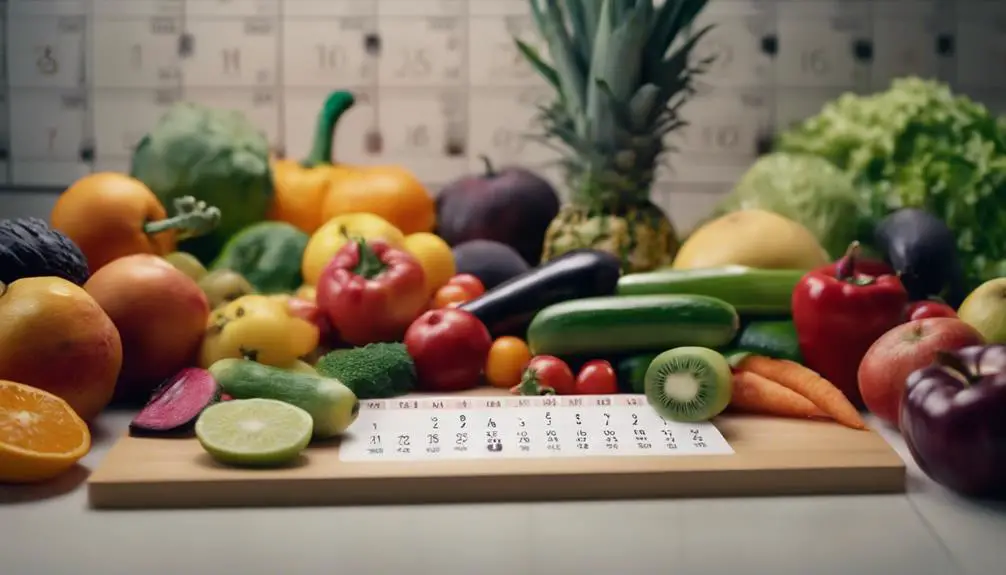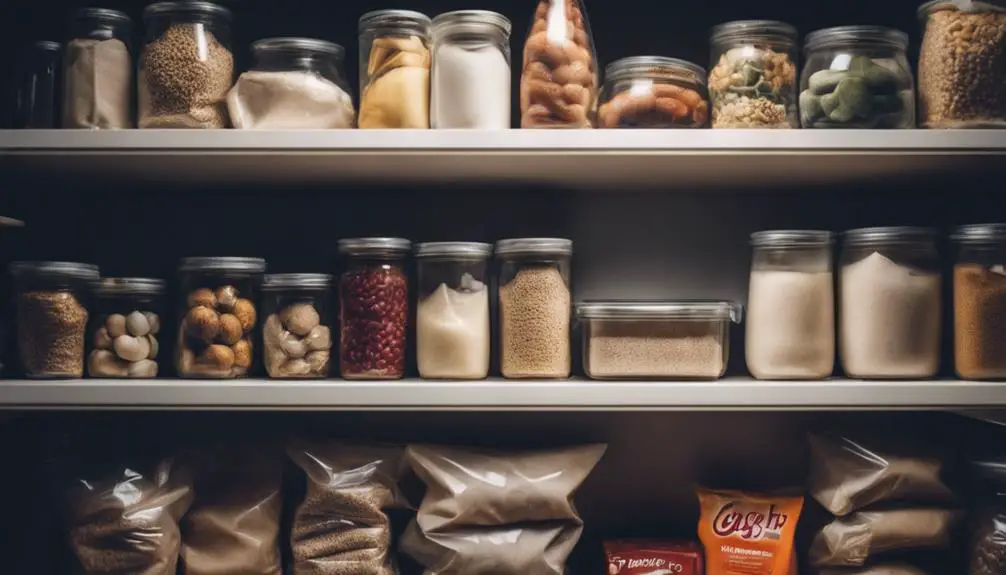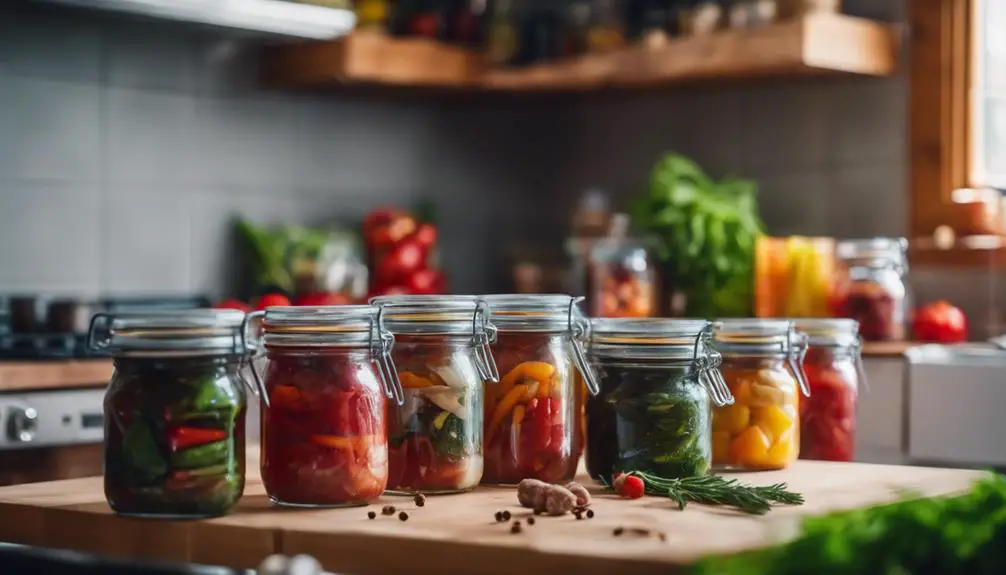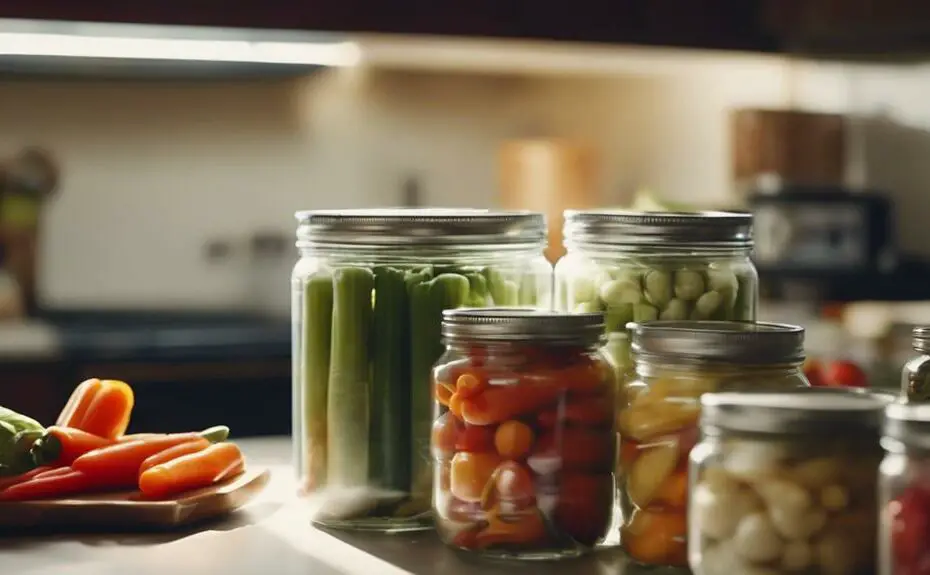Why would anyone ignore the wonders of vacuum sealing when it offers just as many benefits as canning? After personally exploring and comparing the two methods, I have discovered that vacuum sealing not only significantly extends the shelf life of food but also preserves its quality. The taste remains as fresh as the day it was sealed. Additionally, vacuum sealing is a space-saving technique that is also economically sound. It even enhances marination, making flavors more pronounced and meats more tender. Just when I thought I knew everything about preserving food, vacuum sealing introduced me to a whole new dimension. Let’s explore together how this method holds its own against traditional canning.
When it comes to simplicity and effectiveness, vacuum sealing excels. By removing the air from the packaging, it creates an airtight seal that prevents spoilage and keeps food fresh for longer periods. Unlike canning, which requires special equipment and a lengthy process, vacuum sealing is straightforward and hassle-free. With just a vacuum sealer and bags or containers, you can easily preserve a wide variety of foods.
In addition to its simplicity, vacuum sealing offers practical benefits. By removing air and reducing the size of the packaging, it saves valuable space in your pantry, refrigerator, or freezer. This can be especially advantageous for those with limited storage space. Not only does vacuum sealing help you organize your food more efficiently, but it also reduces waste by preventing freezer burn and spoilage. You can say goodbye to throwing away forgotten or freezer-burned items.
One of the most remarkable advantages of vacuum sealing is its ability to preserve the quality of food. Traditional canning methods often result in a loss of flavors and textures due to the high heat involved. In contrast, vacuum sealing retains the freshness and taste of the food. Whether you’re sealing fruits, vegetables, meats, or even leftovers, you can expect them to taste just as delicious as when they were first sealed. This makes vacuum sealing an excellent option for meal prepping and preserving the flavors of seasonal produce.
Furthermore, vacuum sealing can enhance the marination process. By removing the air from the packaging, the flavors of marinades and spices can penetrate the food more deeply. This means that your meats will be more flavorful and tender, resulting in a more enjoyable dining experience. Whether you’re planning to grill, roast, or slow cook your marinated meats, vacuum sealing can take your dishes to the next level.
In terms of cost-effectiveness, vacuum sealing is a smart choice. While canning requires specific jars, lids, and other equipment that can add up in cost, vacuum sealing only requires a vacuum sealer and affordable bags or containers. The initial investment for a vacuum sealer is quickly offset by the money saved from reducing food waste and extending the shelf life of your groceries. It’s a practical solution that can save you both time and money in the long run.
In conclusion, vacuum sealing is a remarkable method for preserving food that offers numerous benefits. It extends the shelf life of food, preserves its quality, saves space, enhances marination, and is cost-effective. Whether you’re a seasoned cook or just starting out in the kitchen, vacuum sealing is a technique worth exploring. It opens up a whole new world of possibilities for keeping your food fresh and delicious. So why not give it a try and experience the wonders of vacuum sealing for yourself?
Extends Shelf Life

Vacuum sealing is a game-changer when it comes to extending the shelf life of food. By removing air from the packaging, it slows down the degradation process and keeps items fresh for much longer. The secret behind this method lies in eliminating oxygen, which prevents the growth of bacteria and mold, the main culprits of food spoilage. It’s not just effective; it’s transformative. With vacuum sealing, I can store perishables for months, or even years, without sacrificing their freshness.
I’ve witnessed the incredible benefits of vacuum sealing firsthand. Fruits, vegetables, meats, and even dry goods like grains and nuts all benefit from this preservation technique. By vacuum sealing, I’m not only saving food, but also saving money and reducing waste. It’s a method that aligns perfectly with sustainable living, allowing me to buy in bulk and store efficiently.
The versatility of vacuum sealing is unmatched. I can use it to preserve leftovers, batch-cooked meals, or ingredients prepped for future use. This flexibility has revolutionized my meal planning and drastically reduced my kitchen waste.
In my journey towards a more sustainable and efficient kitchen, vacuum sealing has become a cornerstone technique. It’s more than just a method; it’s a lifestyle change that highlights the importance of preservation in today’s fast-paced world.
Preserves Food Quality
Preserving the quality and taste of food is essential, and vacuum sealing is a game-changer in achieving this goal. It goes beyond simply extending the shelf life of food. Here’s why vacuum sealing is so important:
- Prevents Freezer Burn: Freezer burn can ruin the texture, color, and taste of frozen goods. Vacuum sealing removes air, protecting food from dehydration and oxidation, ensuring that your frozen items stay fresh and flavorful.
- Locks in Nutrients: Maintaining the nutritional value of food is crucial, and vacuum sealing helps with this. Oxygen can cause vitamins and minerals to deteriorate, but vacuum sealing slows down this process, ensuring that your food stays healthier and more nutritious.
- Maintains Moisture: Whether it’s meat, fruits, or vegetables, retaining moisture is key to preserving quality. Vacuum sealing locks in the moisture, preventing your food from drying out or becoming soggy.
Preserving food isn’t just about extending storage time; it’s about keeping the meals we love as delicious and nutritious as they were meant to be. Vacuum sealing accomplishes this beautifully.
In my experience, vacuum sealing has been a game-changer in my kitchen. It has allowed me to preserve the integrity of my food, ensuring that every meal is fresh, flavorful, and full of nutrients. I highly recommend incorporating vacuum sealing into your food preservation routine for the best results.
Saves Space

One major advantage of vacuum sealing is how it saves space in my kitchen and freezer, making it an essential part of my food storage strategy. Before I started using this method, I’d struggle to organize bulky and oddly shaped packages of frozen foods. Not only did they take up too much space, but it was also difficult to keep track of what I’d in stock. Vacuum sealing solves this problem by removing air from the packages, reducing their volume and allowing them to be stored flat or stacked neatly.
The space-saving aspect of vacuum sealing isn’t just about aesthetics; it’s a practical necessity for efficient kitchen management. With vacuum-sealed packages, I can store more food in the same amount of space. This is especially valuable in a small kitchen or when preparing for large family gatherings. The sleek and uniform packages are easy to label and organize, making it easier for me to rotate my stock and minimize waste.
Furthermore, the compactness of vacuum-sealed packages is a game-changer for meal planning and portion control. I can now prepare meals in advance, seal them in portion-sized packs, and store them without turning my freezer into a chaotic mess. Vacuum sealing maximizes my storage capacity while keeping my kitchen organized and efficient.
Economical Savings
Switching to vacuum sealing has significantly reduced my grocery bills, making it a smart investment for managing my household budget. Vacuum sealing not only preserves food for longer but also leads to tangible economic savings for my family. Here’s why:
Firstly, vacuum sealing allows me to buy in bulk without worrying about spoilage. This means I can take advantage of lower prices per unit and special sales. By purchasing in bulk, I can save money in the long run.
Additionally, vacuum sealing extends the shelf life of my groceries, resulting in less food waste. This means that every dollar I spend on food is fully utilized. I no longer have to throw away expired or spoiled food, which ultimately saves me money.
Furthermore, vacuum-sealed ingredients are readily available, allowing me to plan meals more efficiently. With everything neatly sealed and organized, I can avoid last-minute takeouts or dining out, which tend to be more expensive. This leads to additional savings.
Since adopting vacuum sealing, I’ve noticed a substantial decrease in my monthly food expenditure. While there’s an initial cost involved in purchasing a vacuum sealer and bags, the savings generated from reducing wasted food, making fewer grocery trips, and making smarter buying decisions quickly offset this initial investment.
It’s important to note that vacuum sealing not only saves money but also promotes a sustainable lifestyle. By maximizing resources and minimizing waste, I’m not only benefiting my wallet but also contributing to a healthier planet.
Enhances Marination

Vacuum sealing has completely transformed the way I marinate meats, taking the flavor infusion to a whole new level. It’s a simple yet incredibly effective process that ensures every nook and cranny of the meat is fully exposed to the marinade. This isn’t just a superficial coating of flavor; it’s a deep infusion that makes every bite burst with taste.
What’s even more impressive is how much time it saves. Previously, marinating meat would take overnight or even longer, but with vacuum sealing, it only takes a few hours. This means you can have impromptu BBQs or dinner parties without having to wait for hours on end. It’s not just convenient; it’s a game-changer.
But it’s not just about speed and depth of flavor; it’s also about consistency. Every piece of meat comes out perfectly seasoned, ensuring that every guest gets the same high-quality experience. As someone who’s passionate about cooking, vacuum sealing hasn’t only improved my marination technique but has also elevated the overall culinary experience I provide.
If you’re looking to enhance your marination game, I highly recommend investing in a vacuum sealer. It’s a worthwhile investment that will take your cooking to new heights. Whether you’re marinating a steak, chicken, or even vegetables, the results will be nothing short of extraordinary. Say goodbye to bland and hello to flavor-packed meals that will impress everyone at the table.
Frequently Asked Questions
Can Vacuum Sealing Prevent Freezer Burn on All Types of Foods?
Vacuum sealing is a fantastic method for preventing freezer burn on a wide variety of foods. It not only helps preserve the flavor and texture of your favorite dishes but also extends their shelf life for long-term storage.
Freezer burn occurs when food is exposed to air in the freezer, causing moisture to evaporate and leaving behind dry, discolored patches. This can lead to a loss of taste and quality in your frozen goods. However, by vacuum sealing your food, you remove the air and create a tight seal, preventing any contact with oxygen.
One of the great advantages of vacuum sealing is its versatility. It works well with almost any type of food, from meats and fish to fruits and vegetables. You can also vacuum seal prepared meals, soups, and even baked goods. By removing the air, you eliminate the risk of freezer burn and ensure your food stays fresh and delicious.
Not only does vacuum sealing prevent freezer burn, but it also helps to retain the nutrients in your food. When you freeze food without proper protection, it can suffer from nutrient loss. However, with vacuum sealing, you can lock in the goodness and maintain the nutritional value of your meals.
When it comes to specific product recommendations, there are several reliable vacuum sealers available on the market. One popular option is the FoodSaver Vacuum Sealer, known for its durability and effectiveness in preventing freezer burn. Another top choice is the NutriChef Vacuum Sealer, which offers user-friendly features and a compact design.
How Does Vacuum Sealing Impact the Nutritional Value of Foods Compared to Canning?
Vacuum sealing is an effective method for preserving the nutritional value of foods, and it does so comparably well to canning. Unlike canning, which involves high temperatures that can degrade certain nutrients, vacuum sealing keeps food’s goodness intact without subjecting it to excessive heat.
One of the benefits of vacuum sealing is that it allows you to maintain the nutritional value of your food without the need for added preservatives. By removing the air from the packaging, vacuum sealing helps to prevent the growth of bacteria and other microorganisms that can cause spoilage. This means that you can store your food for longer periods without worrying about it spoiling or losing its nutritional value.
Another advantage of vacuum sealing is that it helps to retain the natural flavors and textures of the food. By sealing the food in an airtight environment, vacuum sealing prevents the loss of moisture, which can lead to drying out and loss of flavor. This means that when you open the vacuum-sealed package, the food inside will still taste fresh and delicious.
Vacuum sealing is also a great option for meal prepping and portion control. By vacuum sealing individual portions of food, you can easily grab a meal or snack whenever you need it, without having to worry about leftovers going to waste. This is particularly useful for busy individuals or those following specific dietary plans.
When it comes to specific product recommendations, there are several vacuum sealers on the market that have received positive reviews from users. The FoodSaver V4840 2-in-1 Vacuum Sealer is a popular choice for its versatility and ease of use. It offers both vacuum-sealing and handheld sealing options, allowing you to seal a variety of different food items. Another highly rated option is the NutriChef Vacuum Sealer, which is known for its powerful suction and durable construction.
Are There Any Foods That Should Not Be Vacuum Sealed?
Certain foods should not be vacuum sealed due to the gases they emit, which can spoil the food. Cruciferous vegetables like broccoli fall into this category. It’s best to avoid vacuum sealing them to maintain their freshness.
Soft cheeses and raw mushrooms are also not ideal for vacuum sealing. The moisture content in soft cheeses can cause them to become mushy and lose their texture. Raw mushrooms can also become slimy when vacuum sealed, affecting their quality.
To ensure the longevity and quality of these foods, it’s best to store them using alternative methods. For cruciferous vegetables like broccoli, consider blanching and freezing them. Soft cheeses can be wrapped in wax paper or placed in airtight containers in the refrigerator. Raw mushrooms can be stored in a paper bag or wrapped in a damp cloth to maintain their freshness.
How Does the Initial Investment in a Vacuum Sealer Compare to Canning Supplies Over Time?
Initially, the cost of a vacuum sealer may be higher compared to purchasing canning supplies. However, when you consider its efficiency and the potential savings in reducing food waste, it becomes a game-changer. In fact, over time, a vacuum sealer can actually become more cost-effective than canning.
One of the main advantages of a vacuum sealer is its ability to extend the shelf life of food. By removing the air from the packaging, it helps to preserve the freshness and quality of the food for a longer period of time. This means that you can buy food in bulk or take advantage of sales without worrying about it going bad before you have a chance to use it.
Additionally, a vacuum sealer allows you to portion out your food into smaller servings, which can help prevent waste. Instead of opening a whole can or jar of food and only using a portion of it, you can seal the rest in individual packages and store them for later use. This not only reduces waste but also saves you money by allowing you to use only what you need.
When it comes to cost, it’s important to consider the long-term savings. While the initial investment in a vacuum sealer may be higher, the cost of canning supplies can add up over time. Canning jars, lids, and other equipment need to be replaced periodically, which can become expensive. On the other hand, a vacuum sealer typically only requires the purchase of bags or rolls, which are usually more cost-effective.
In terms of convenience, a vacuum sealer also has the upper hand. It is a quick and easy process to seal food in bags, and it takes up less space in your pantry or freezer compared to canning jars. This can be especially beneficial for those with limited storage space.
Can Vacuum-Sealed Foods Be Stored at Room Temperature, or Do They Require Refrigeration or Freezing?
Vacuum-sealed foods need to be refrigerated or frozen for safety reasons. Unlike canned goods, they cannot be stored at room temperature because vacuum sealing does not eliminate all the bacteria that can cause spoilage. Refrigeration or freezing helps slow down the growth of bacteria, keeping the food fresh for a longer period of time.
When it comes to vacuum-sealed foods, it’s important to understand that the absence of oxygen in the packaging does not mean the absence of bacteria. While vacuum sealing can extend the shelf life of food by reducing the amount of oxygen available for bacteria to grow, it does not eliminate all the bacteria present. Some bacteria, such as the ones that cause botulism, can still thrive in low-oxygen environments.
Refrigerating or freezing vacuum-sealed foods is the best way to ensure their safety and maintain their quality. Refrigeration slows down the growth of bacteria, while freezing stops it altogether. This means that refrigerated or frozen vacuum-sealed foods can last much longer than those stored at room temperature.
It’s also important to note that not all foods can be safely vacuum-sealed. Foods with high moisture content, such as raw fruits and vegetables, can create an environment for bacteria to grow even in vacuum-sealed packaging. It’s best to consult specific guidelines for each type of food to determine the optimal storage method.
When vacuum-sealing foods for refrigeration or freezing, it’s important to use high-quality vacuum-sealer bags or containers. These should be specifically designed for food storage and have a strong seal to prevent any air from entering. It’s also a good idea to label the packages with the date of sealing to keep track of their freshness.
Conclusion
Vacuum sealing is truly a game-changer in the kitchen. It’s like a magical tool that can significantly prolong the freshness of your food and save you money in the long run. Not only does it keep your food from spoiling, but it also helps maintain that just-picked taste and quality.
One of the great advantages of vacuum sealing is that it allows you to reorganize your freezer in a neat and efficient way. No more digging through piles of frozen food to find what you need. With vacuum-sealed packages, you can easily see what you have and grab what you want without any hassle. It’s a time-saver and a stress-reliever.
Another fantastic benefit of vacuum sealing is how it enhances the marination process. By removing the air from the package, the flavors of the marinade are able to penetrate the food more effectively. This means that you can achieve deliciously marinated dishes in a fraction of the time compared to traditional methods. It’s like an express lane to flavor town!
Vacuum sealing also allows you to buy in bulk without worrying about food waste. You can purchase larger quantities of your favorite foods and seal them into individual portions for later use. This not only saves you money, but it also helps reduce food waste, which is a win-win for both your wallet and the environment.
Additionally, vacuum sealing is a great way to preserve the freshness of seasonal produce. When fruits and vegetables are in season, they’re at their peak flavor and nutritional value. By vacuum sealing them, you can enjoy their goodness throughout the year, even when they’re out of season. It’s like having a taste of summer in the middle of winter!
Lastly, vacuum sealing is incredibly versatile. It can be used for a wide range of foods, from meats and seafood to soups and sauces. You can even use it to seal non-food items like important documents or camping gear. It’s a handy tool that goes beyond just preserving food.
In conclusion, vacuum sealing is a kitchen miracle that offers numerous benefits. From extending the shelf life of your food to enhancing flavors and saving money, it’s a must-have tool for any home cook. So, wave that magic wand and start vacuum sealing your way to a more efficient and enjoyable meal prep experience.
